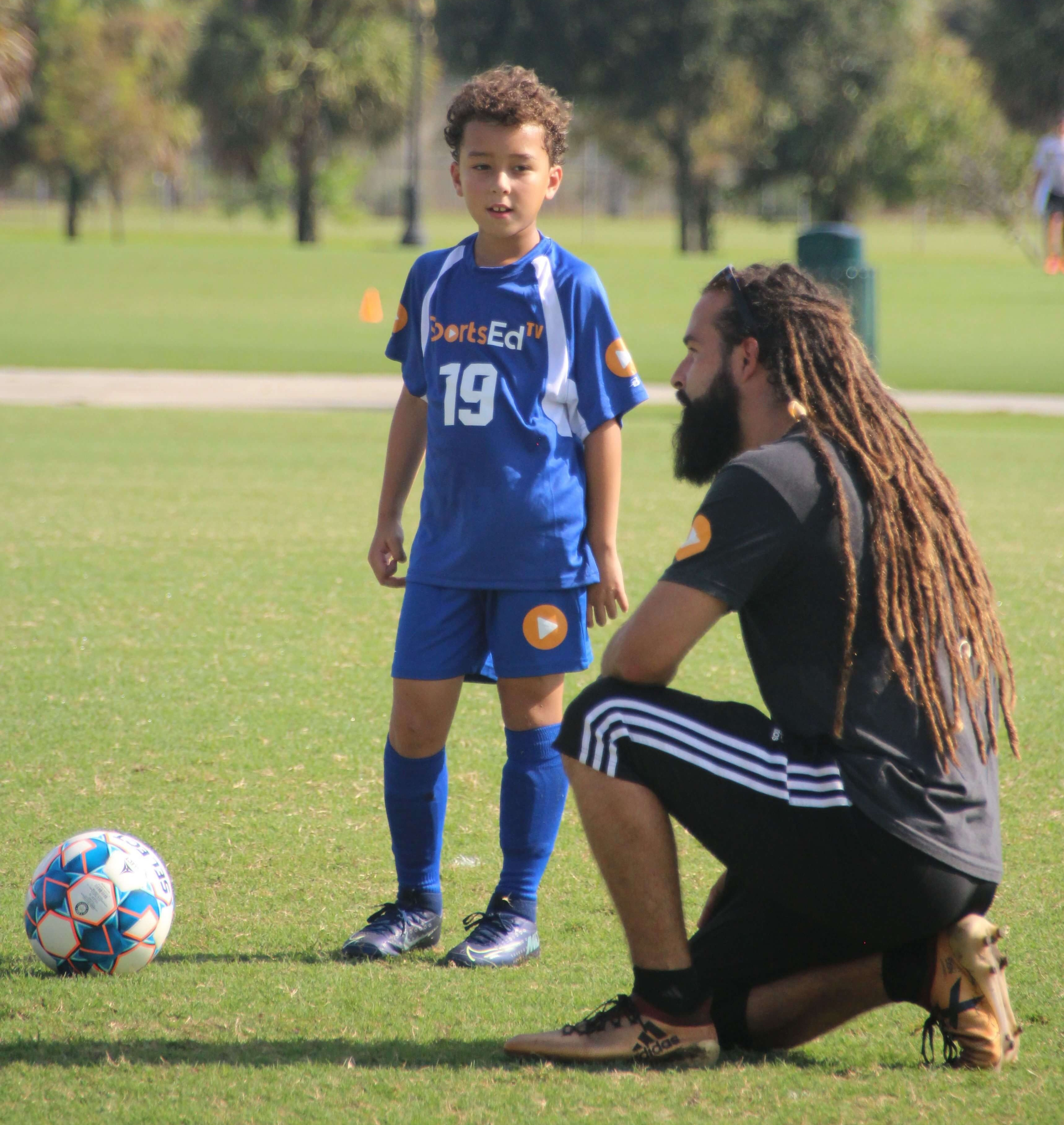Soccer
Welcome and thanks for visiting...

How To Become A Better Youth Soccer Coach - Part 1

SportsEdTV Soccer is committed to bringing athletes, coaches, and parents pro-level Soccer education videos for FREE. All levels, anywhere, anytime. Check out our full instructional library and sign up to join our Soccer community.
Karl Dewazien of FUNdamental SOCCER, Emeritus State Director of Coaching for the California Youth Soccer Association 1978-2012, discusses how to improve as a youth soccer coach and become a soccer intellectual.
I’m a great believer in lifelong learning. I do not believe that it is possible to ever have all the information you will need for the future. We are and should be in coaching development all of our life, and we must never stop learning.
Let me tell you a fictional story about a former World Cup-winning coach. When he was in his 90’s, this coach was in the hospital, and a local youth coach visited him. As the local youth coach was ushered into the room, the former WC-winning coach was reading “FUNdamental SOCCER –Practice.” The youth coach asked, “Why are you reading about soccer fundamentals?”
And the WC winner replied, “I am coaching my grandchildren and need to improve my knowledge about youth and how to coach them!” Ninety years old WC winner and still trying to learn something about youth and coaching them. Isn’t that Remarkable? And shouldn’t we, US Youth Coaches, do the same?
We live in a sad time when you consider the following statistics:
- 51% of American soccer coaches never read another soccer book after attending two coaching courses.
- 73% of all soccer books in libraries are never checked out.
- 69% of American soccer coaches watch only two pro games on TV per week.
- And the average American youth coach annually spends ten times more on what he puts on his head than what he puts into his head.

Reading is a great way to expand your knowledge and improve as a coach
Consider the following:
- If you read just one soccer book per month for 12 straight months, you will be in the top 25% of all soccer intellectuals in the world!
- If you read just 15 minutes a day every day for one year, you could complete 12 books!
- If you shared just 10% of what you learned/experienced and how it could fit into our youth development programs
Koach Karl’s Moral -If you read one soccer book per month and were able to apply what you read; then, you would be in the top 25% of all soccer intellectuals in the world. If you then shared just 10% of what you learned/experienced with your players, fellow coaches, and programs, I genuinely believe this is needed to create a top-tier development for our child athletes.
If you don’t have time to read any book(s), then you might benefit from reading ‘What I Have Learned from 40+ Years of Coaching/Teaching!” In this book, I have dedicated the past forty-plus years to providing youth coaches with the best information to be successful. Why? Because successful coaches give their players the best opportunities to fulfill their dreams. Here are the recurring themes that will help you be a successful youth coach. It is not that complicated!
You’re More Than Just a Coach
When coaching, be as helpful, understanding, and patient as you are when teaching your children life skills such as reading and writing. You may be these players’ first and most influential coach and teacher. The stimulation and support you provide can instill a desire to play soccer for years to come. Do more than preparing them for the next opponent. Prepare them for lifelong enjoyment of playing sports.

As a youth coach, the way you interact with your players will influence them for the rest of their life. A positive, supportive, and understanding approach will benefit them far beyond the soccer field.
Children Learn Through Positive Reinforcement
When improvement does not occur immediately, children will not sense failure unless you show an adverse reaction. Take the approach of being a positive influence. Reward players with a positive comment, a pat on the back, or simply a smile when they earn it. This will teach them the needed habit of not being discouraged by failure, but continuing to try and learn until they get it right.
Young Athletes Come to Practice to Play!
Replace words such as “exercises” and “drills” with the word “game.” It’s a great way to get players excited about practice rather than making it feel like a chore.
Furthermore, make sure you keep your players active. Understand that if the ball is moving and the players are moving, learning is taking place. Once either the ball or the players stop moving, learning stops!
Always Consider the Skill Level of Your Players
Gear practices so that each player is challenged. If conditions are too simple, they will get bored. If conditions are too complex, they will be confused. Therefore, create an environment that forces the players to make decisions and learn on their own.
If your players are technically weak, always have them work with a ball in a large area against few opponents who are either walking or jogging. If your players are technically strong, have them work with and without the ball, in confined areas, and against more opponents.
Youth Sports Lessons Go Beyond the Field of Play
Give your players the tools in practice to discover their way to success. Teach them to become independent and responsible for their personal development. If you instill a desire for improvement in your young athlete, they’ll improve not just their sports game but in every facet of life.
Click Here To Read Part 2 Of This Series: Creating A Successful Practice
Follow SportsEdTV Soccer on Facebook and Instagram to stay up-to-date with the latest content





